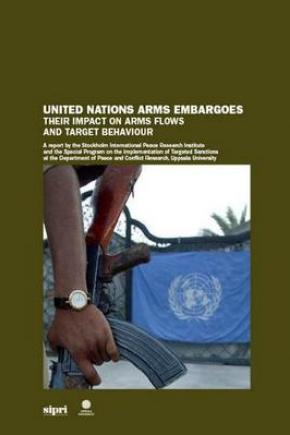United Nations Arms Embargoes: Their Impact on Arms Flows and Target Behaviour

In an effort to further improve the effectiveness of the targeting of UN arms embargoes, this report offers a typology to be considered when designing and assessing UN arms embargoes. The typology distinguishes between the different international peace and security end goals of:
- countering threats against Global Security;
- strengthening legitimate Government Authority; and
- achieving the peaceful political settlement of a violent armed conflict through Conflict Management.
The results indicate that embargoes have different impacts on arms flows and target behaviour in these three types of situation. In reaching these conclusions, the researchers have also looked carefully at alternative explanations.
Recommendations for strengthening the implementation of arms embargoes are addressed in particular to the UN Security Council, but will be of interest to all UN member states, UN agencies, regional organizations, non-governmental organizations, researchers and the concerned general public.
1. Introduction
2. Assessing the impact of threats of a UN arms embargo
3. Assessing the implementation of UN arms embargoes
4. Assessing the impact of ending a UN arms embargo
5. Recommendations for the UN Security Council

